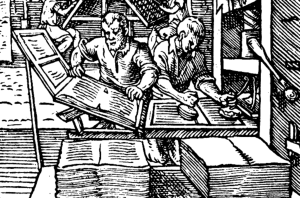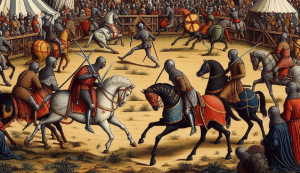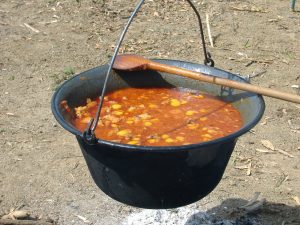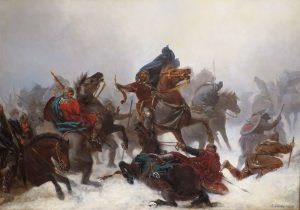
Early Information Exchange: When Sailors Shared and Peasants Liked
In stark contrast, during the late 15th century, information traveled through offline routes, forming an early communication network and laying the groundwork for the sophisticated information systems we use today.
Read More
The Tournament of Chauvency (1285): Eagerly Anticipated Jousting Contests
Medieval jousting in France held a significant place in the cultural and social fabric of the era, serving as both a spectacle of martial skill and a symbol of aristocratic prestige.
Read More
Goulash: Culinary Icon of the Hungarian Puszta
There is always something special about the history of a certain dish, a unique blend of flavors, savors, and tastes. When you try Hungarian goulash, its enticing flavor and smell lead back to a bygone era when the vast Hungarian Puszta echoed with the calls of nomadic herders and shepherds. It was during these times, around the 9th century, that goulash emerged as a humble yet healthful dish, marking the inception of a culinary legacy that would endure for centuries.
Read More
King Sverre of Norway: The Birkebeiner Alliance and Rise to Power, 1177-1184
Around the year 1175, when Sverre Sigurdsson learned he was the son of King Sigurd (II) Munn, he left the Faroes where he was raised and returned to the land of his birth.
Read More
Sverre Sigurdsson (1151-1202): The Brothers’ Civil War and Faroese Boy Destined to be Norway’s King
Sometime after his victory at the Battle of Kalvskinnet in 1179, near Trondheim, Norway, King Sverre Sigurdsson (1151-1202), in the second year of his tenuous reign, beckoned an Icelandic abbot named Karl Jonssen, of the Tingeyre (Þingeyri) monastery, in the windswept coast of northwest Iceland, to chronicle his life and ensure his story would prevail through the ages.
Read More